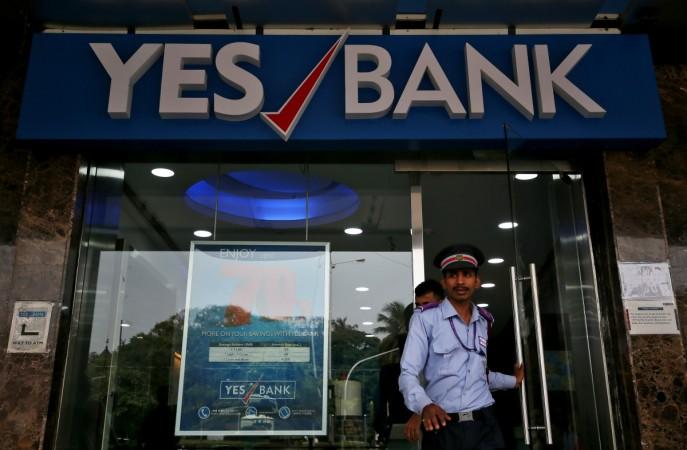As per the draft proposal sent by SBI to the RBI, the seven private investors and LIC will be pumping in investments to the tune of approximately Rs 11,700 crore to revive the private-lending financial entity Yes Bank from crisis.
SBI's draft proposal to the RBI: Under consideration
In the six-page plan sent to the RBI, by the state-owned lender, SBI detailed how much capital each investor will bring and by when will the plan be executed. As per the final plan sent to RBI, these may not be the final set of investors, but along with SBI, there are seven other investors, as confirmed by news sources.
According to information provided by an official aware of the matter said, "All the investors are local and their collective share is slightly more than what SBI is investing on its own. They are investing in phases and it is possible that they will invest more in the future or foreign funds will join in later."
According to the six-page proposal submitted by SBI to the RBI, public-sector banks will bring in Rs 30,000 crore as bulk deposits and certificates of deposits to stabilize the bank in case of withdrawals and fund transfers once the moratorium is lifted. Other investors are likely to bring in the equity capital of Rs 20,000 crore, according to sources.
In Thursday's filing, SBI had said it will invest Rs 7,250 crore for 49 per cent of paid-up capital in the Yes Bank. The SBI's central board has approved the purchase of 725 crore shares in Yes Bank Ltd at a price of Rs 10 per share subject to all regulatory approvals. This announcement comes after the Union Cabinet approved Yes Bank's restructuring plan as per the proposal by the central government-owned public-sector financial entity SBI. Yes Bank's restructuring scheme is intended to safeguard depositors' interest and ensure a stable financial banking system.
Details on the investment plan to revive Yes Bank
SBI invests Rs 7250 crore, ICICI Bank and HDFC Bank invest Rs 1000 crore each, Axis Bank pumps in Rs 600 crore and Kotak Mahindra Bank invests Rs 500 crore.

While ICICI Bank and HDFC, will own 6 per cent stake at an investment of Rs 1,000 crore each, Axis Bank, Kotak Mahindra Bank, Radhakishan Damani, Rakesh Jhunjhunwala and Azim Premji Trust will own 3 per cent each at an investment of Rs 500 crore each.
Meanwhile, HDFC and ICICI will be purchasing 100 crore equity shares at a price of ₹10 per share (including Rs 8 premium per share). AT1 bondholders will get new equity having an approximate value of Rs 1,700 crore, which is 10.5 per cent as per the SBI proposal to RBI.
With this investment, the ICICI Bank's shareholding in Yes Bank will be excess of 5 per cent, however, the final shareholding will be determined on the final reconstruction plan and final issuance of shares thereafter.
"This is to inform you that the Board of Directors of Axis Bank Ltd at its meeting held today has accorded approval to invest a sum of up to Rs. 600 crore for acquiring up to 60 crore equity shares of Rs. 2 each of Yes Bank Limited, for cash, at a premium of Rs. 8 per equity share, under the proposed Scheme of Reconstruction of Yes Bank Limited under the Banking Regulation Act, 1949," Axis Bank said in a statement issued to the exchanges. The Axis Bank will be holding less than 5 per cent of the paid-up capital of Yes Bank.
RBI has also managed to rope in LIC in the restructuring of Yes Bank. In the latest development, LIC will be investing Rs 1,350 crore to buy 1.35 billion shares of YES Bank at Rs 10 per share including Rs 8 as premium. While LIC already holds an 8.06 per cent stake in Yes Bank, considering its "large exposure in bank's debt instruments that have now been downgraded by all rating agencies. At the end of the December quarter (Q3), LIC had an exposure of ₹8,051 crores to the debt instruments of Yes Bank," IANS reported.
What is required of the investors in Yes Bank?
Finance Minister Nirmala Sitharaman said that SBI will be required to maintain a minimum shareholding of 26 percent in Yes Bank for three years, while other private lending institutions investing in the bank will be required to maintain 75 per cent of their shareholding for the next three years. She further specified that the moratorium on withdrawals will be lifted within three days from the notification of the scheme at 1600 hours.

Last week, RBI issued a moratorium to Yes Bank and capped the withdrawal limit at Rs 50,000 till April 3, due to the deteriorating financial health of the bank. SBI CFO Prashant Kumar was appointed as administrator for RBI temporarily until the new board of directors will soon take over. YES Bank administrator Prashant Kumar will be appointed as the new CEO of the bank, as per the SBI proposal. The government will soon nominate the non-executive chairman and two independent directors on the board of YES Bank.













